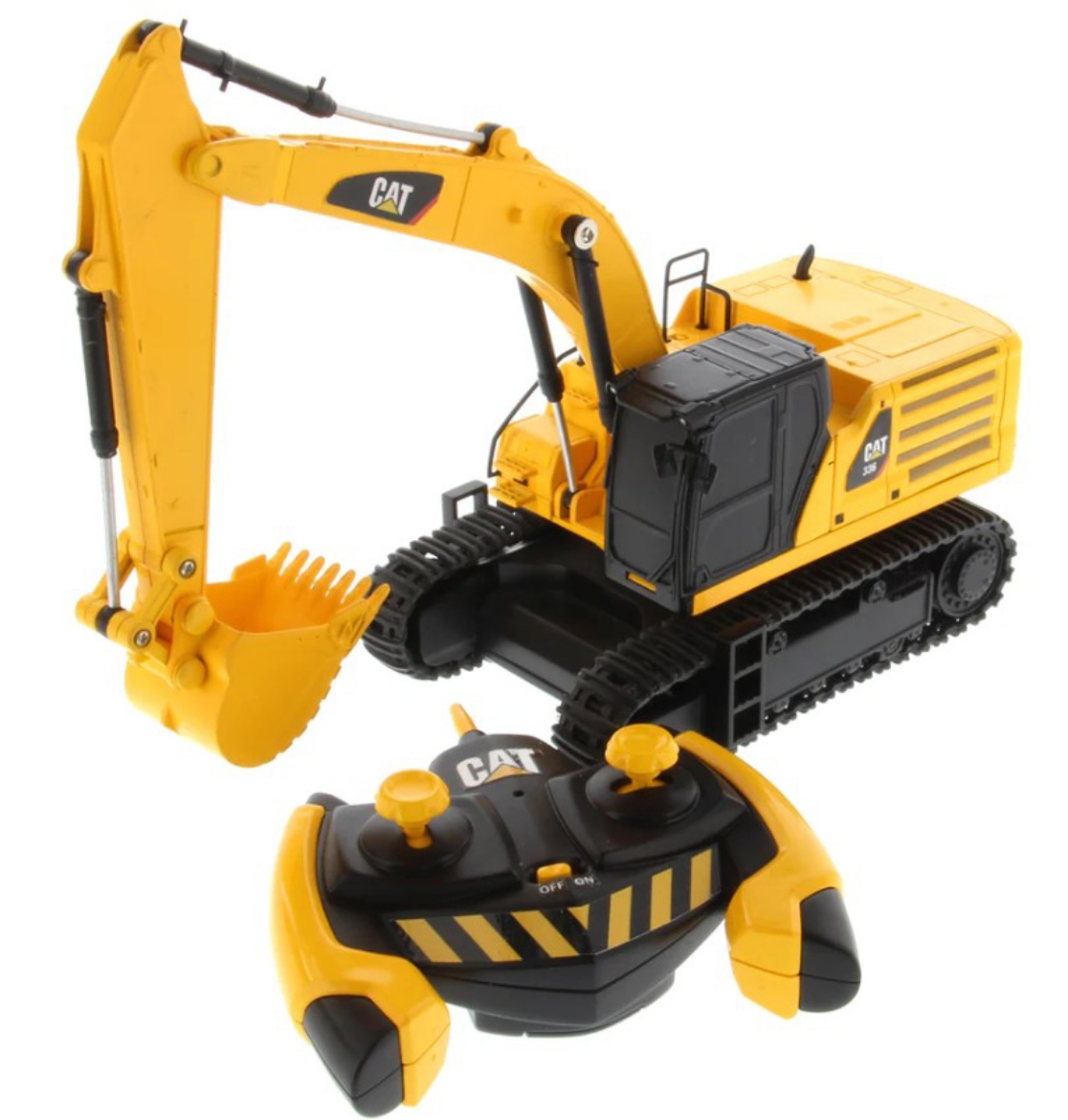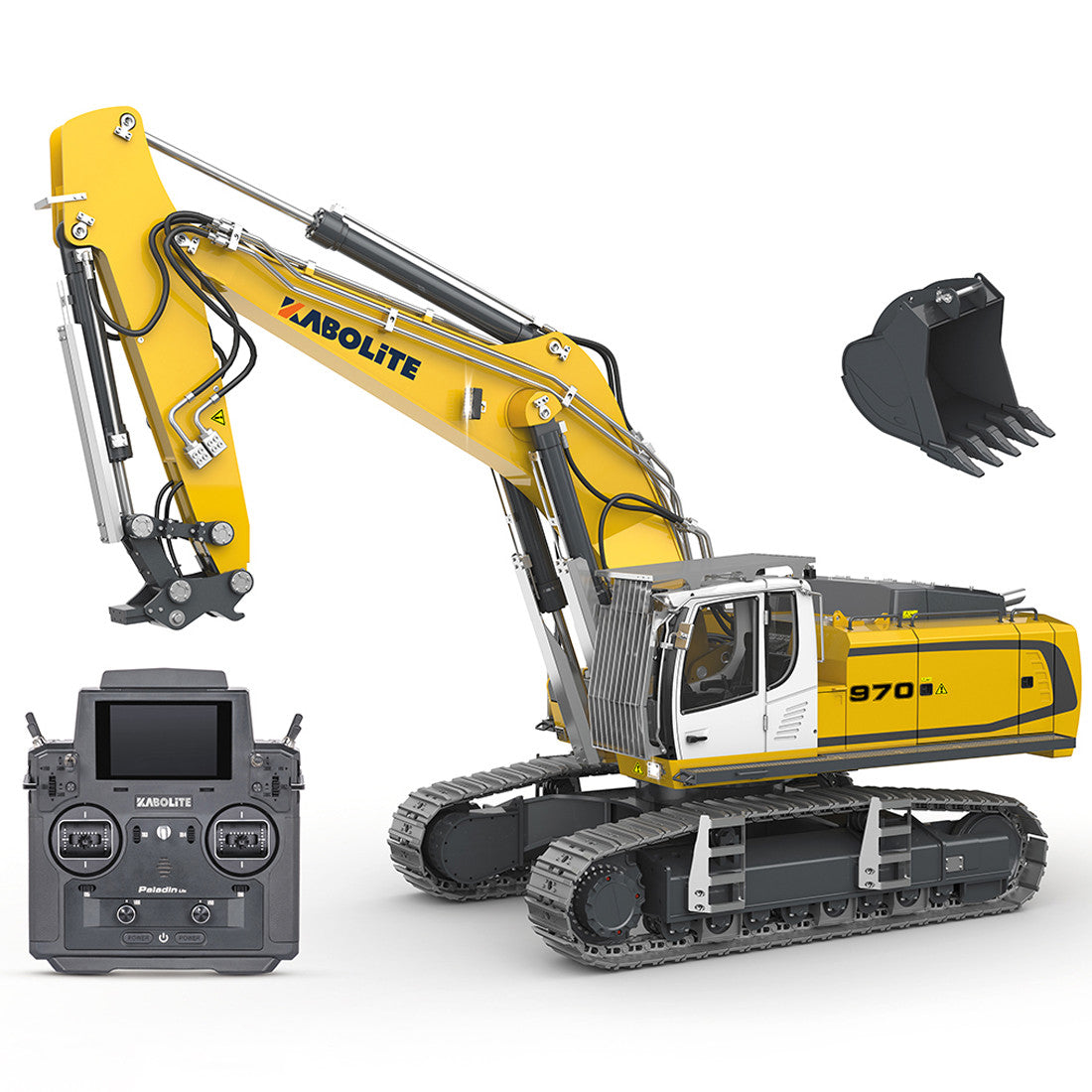10 Common Mistakes to Avoid When Operating a rc excavator
Wiki Article
Recognizing Exactly How Excavator Functions and Its Effect on Efficiency
Excavators play a crucial function in construction and mining procedures, relying on an intricate interplay of mechanical and hydraulic systems. Their capability to perform a selection of tasks rests on both their style and the innovation integrated within. Recognizing these elements can substantially affect functional efficiency and efficiency. As innovations remain to improve the market, one have to think about how these changes will certainly affect future practices and performance.The Fundamentals of Excavator Mechanics

The Duty of Hydraulic Systems in Excavators
At the heart of excavator operation lies the hydraulic system, which plays a critical function in powering the maker's activities and features. This system uses pressurized hydraulic fluid to transfer energy, enabling various actions such as digging, lifting, and moving. By utilizing the principles of hydraulics, excavators can carry out tasks with remarkable precision and pressure, boosting overall functional efficiency.The hydraulic system is composed of vital parts, including pumps, valves, and cylinders, which interact to manage the flow and instructions of the liquid. When the operator involves the controls, the hydraulic liquid is directed to details cylinders, converting the operator's commands into physical activity. This system enables smooth and receptive actions, which are essential in construction and excavation settings. double e volvo rc excavator. The effectiveness of the hydraulic system straight affects the productivity and convenience of the excavator, making it an indispensable component in contemporary excavation proceduresSecret Components of an Excavator
Comprehending the key parts of an excavator is necessary for understanding just how this powerful equipment operates. An excavator contains several substantial elements, consisting of the undercarriage, house, arm, bucket, and boom. The undercarriage supplies security and wheelchair, frequently including tracks or wheels to browse various terrains. The residence includes the engine and hydraulic systems, permitting the operator to regulate movement and power the maker. The boom extends from your house, making it possible for vertical reach, while the arm links to the container, promoting excavating and training operations.Additionally, the cab houses the driver, geared up with controls for exact handling. Each of these components plays an essential function in the excavator's total functionality, contributing to its effectiveness and performance on building and construction sites. Understanding these parts assists in optimizing and preserving excavator performance, making sure jobs are finished securely and properly.Attachment Versatility and Its Benefits
Attachment flexibility is a crucial facet of excavators, enabling operators to switch between various tools customized for specific tasks. This adaptability not only enhances job effectiveness however additionally adds to cost-effectiveness by lowering the demand for multiple machines. Understanding the different kinds of add-ons available can considerably influence the general efficiency and functionality of an excavator on task websites.Kinds of Attachments
While excavators are mostly recognized for their digging abilities, their real versatility depends on the large variety of add-ons readily available. These attachments enhance the excavator's performance, permitting it to execute numerous jobs past excavation. Typical accessories include pails (for digging and scooping), hydraulic thumbs (for grasping products), and augers (for drilling openings) Grapples are used for dealing with and moving particles, while rippers can separate hard surface areas. Other specialized add-ons, such as plates and plows, make it possible for excavators to adapt to specific task requirements. This variety not only increases the equipment's utility throughout various sectors, consisting of construction, demolition, and landscape design, yet also permits operators to customize their equipment to satisfy specific job needs effectively.Raised Task Performance
Optimizing job performance is a primary benefit of utilizing different excavator accessories. Different accessories permit an excavator to execute numerous jobs without requiring to change devices, conserving useful time and labor. As an example, utilizing a hydraulic hammer can damage concrete while a container add-on can excavate soil, enabling a smooth workflow. This versatility decreases downtime connected with devices adjustments and boosts productivity on-site. Additionally, specialized accessories enhance accuracy in tasks such as grading or landscape design, leading to better outcomes. The capability to adapt to different work requirements not only simplifies procedures yet likewise minimizes the requirement for added equipment, making certain that projects are finished promptly and effectively. Generally, add-on versatility significantly adds to enhanced job efficiency in excavation work.Cost-Effectiveness and Flexibility
Cost-effectiveness is a significant advantage of utilizing functional excavator add-ons. These accessories enable a single excavator to execute multiple tasks, lowering the requirement for additional equipment and labor - double e volvo rc excavator. By switching over between buckets, hammers, and grapples, drivers can deal with various tasks, from excavating to demolition, thus taking full advantage of devices utilization. This flexibility not only decreases functional costs yet likewise minimizes downtime related to altering equipment. Furthermore, the ability to tailor excavators with specialized accessories boosts efficiency, as they can successfully manage varied tasks according to task demands. To end, the combination of cost-effectiveness and versatility in excavator accessories contributes to enhanced operational effectiveness and source allowance in construction and excavation tasks
Advanced Innovation in Modern Excavators
Modern excavators are progressively geared up with advanced modern technology that transforms excavation processes. Automation simplifies procedures, while enhanced gas performance minimizes operational prices. In addition, wise control systems improve accuracy and security, noting a substantial development in excavation devices.Automation in Excavation Processes
As excavation modern technology evolves, automation has arised as an essential element in boosting effectiveness and precision on job websites. Modern excavators are outfitted with advanced automated systems that assist in tasks such as grading, excavating, and trenching with very little operator treatment. These systems use sensing units, GPS, and maker discovering algorithms to ensure precise positioning and deepness control, significantly reducing the margin for error. Additionally, automation allows operators to focus on critical decision-making instead of hands-on controls, leading to enhanced performance overall. Such advancements not just streamline process however additionally enhance security by lessening human mistake in complex operations. As a result, the combination of automation in excavation procedures stands for a considerable development in building modern technology, driving the sector in the direction of greater efficiency and efficiency.Enhanced Fuel Efficiency
Advancements in technology have also led to significant improvements in gas performance for modern excavators. Modern equipments are outfitted with innovative engines that enhance power outcome while decreasing fuel consumption. These engines utilize cutting-edge burning modern technologies, such as turbocharging and direct fuel injection, to boost efficiency and effectiveness. Additionally, lightweight products in building decrease overall weight, enabling less power expense during procedure. The intro of variable speed controls enables drivers to change engine performance according to specific jobs, even more reducing gas usage. Because of this, these improvements not only lower functional costs yet likewise contribute to ecological sustainability by decreasing emissions. On the whole, improved fuel effectiveness in excavators is a necessary advancement that bolsters efficiency and economic feasibility in the construction sector.Smart Control Solution
While drivers navigate significantly complicated work sites, clever control systems in excavators have arised as vital devices for improving efficiency and accuracy. These advanced innovations make use of algorithms and sensing units to monitor different criteria such as tons weight, surface problems, and operational efficiency. By automatically changing hydraulic features, wise systems maximize machine performance, bring about improved efficiency and lowered wear on parts. Additionally, operators gain from instinctive interfaces that supply real-time responses and diagnostics, enabling for notified decision-making. This assimilation of technology not only simplifies operations however additionally minimizes human error, adding to more secure workplace. As the building sector proceeds to evolve, smart control systems will certainly play an essential role in shaping the future of excavator performance and performance.Enhancing Operational Efficiency With Excavators
Excavators play a vital duty in improving operational efficiency throughout various construction and excavation projects. Their versatility permits multiple jobs, including excavating, material, and training handling, which improves workflows and decreases the need for additional tools. With effective hydraulic systems, excavators can do durable tasks with precision, considerably lowering the moment needed to total projects. The integration of innovative innovation, such as GPS and automated controls, even more optimizes their procedure, allowing operators to attain higher accuracy and reduce product waste. Furthermore, modern excavators are designed to eat less fuel and decrease discharges, contributing to both price savings and environmental sustainability. By making use of excavators successfully, construction groups can improve productivity, fulfill project target dates, and improve total website administration. This multifunctionality and effectiveness make excavators important devices in the contemporary building and construction landscape.The Future of Excavators in Building and Mining Industries
As the construction and mining sectors develop, the future of excavators is positioned for significant makeover driven by technological technology and altering functional demands. Developments in automation and expert system are reshaping excavator abilities, enabling improved accuracy and efficiency in procedures. Autonomous excavators are emerging, lowering the need for human treatment and decreasing the risk of accidents.Moreover, the assimilation of telematics and IoT technology allows real-time surveillance of device efficiency and anticipating maintenance, enhancing uptime. Eco-friendly designs, consisting of electric and hybrid designs, are gaining traction, lining up with sustainability objectives within the industry.Additionally, making use of innovative materials and lighter styles boosts fuel effectiveness while keeping efficiency standards. As these patterns progression, excavators will certainly play a vital function in fulfilling the increasing rc excavator demands for efficiency and safety and security in building and construction and mining, ultimately transforming operational landscapes.Often Asked Inquiries
Just How Do Weather Affect Excavator Efficiency?

Climate condition significantly influence excavator efficiency, as rain and mud can prevent grip and stability, while extreme temperature levels might impact hydraulic systems. Operators must adjust to these variables to ensure optimal performance and safety throughout operations.
What Safety Measures Should Operators Adhere To While Utilizing Excavators?
Precaution for excavator drivers include putting on suitable personal safety devices, conducting pre-operation assessments, guaranteeing proper communication with ground employees, maintaining a safe distance from overhead threats, and sticking to well-known functional methods to avoid accidents.Just How Usually Should Excavators Be Preserved for Optimal Performance?
Excavators should be preserved regularly to ensure peak efficiency, generally every 250 operating hours or as defined by the manufacturer. Routine checks boost reliability, avoid unanticipated breakdowns, and prolong the life-span of the equipment.
What Is the Typical Life Expectancy of an Excavator?
The ordinary lifespan of an excavator usually varies from 10,000 to 15,000 hours of procedure. Elements influencing durability consist of upkeep practices, operating conditions, and the high quality of the maker itself, influencing overall productivity and performance.
Can Excavators Run on Uneven Terrain Properly?
Excavators can operate properly on uneven surface due to their verbalized layouts and adjustable tracks. These functions permit them to maintain security and grip, allowing reliable procedure in tough environments frequently encountered in construction and landscape design tasks. Each of these components plays an essential function in the excavator's total functionality, contributing to its effectiveness and performance on building and construction sites. Taking full advantage of work performance is a primary advantage of utilizing different excavator accessories. While drivers browse significantly complex job sites, smart control systems in excavators have emerged as vital devices for boosting performance and accuracy. Excavators play an essential role in enhancing operational effectiveness across different building and excavation jobs. Developments in automation and man-made knowledge are improving excavator abilities, enabling for improved precision and effectiveness in operations.Report this wiki page